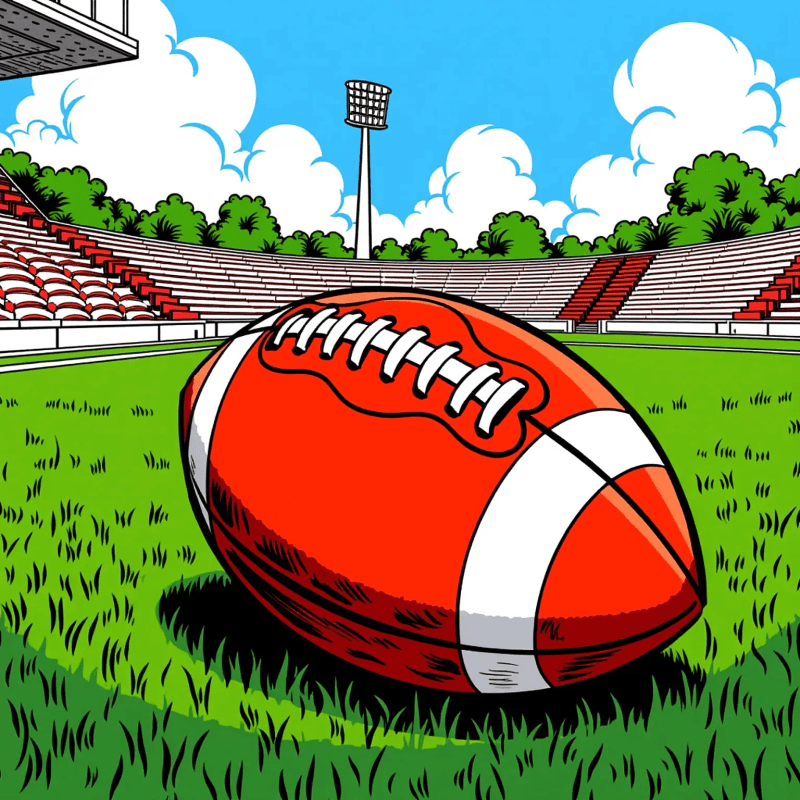Flag football has seen a significant rise in popularity over the last few years, capturing the attention of players, coaches, and fans alike. It’s no longer just a recreational game played in backyards or at summer camps; it's becoming a serious sport with leagues forming in communities across the globe. The excitement surrounding flag football is infectious, making it a great option for both kids and adults who want to enjoy football without the contact.
This surge in interest is partly due to its inclusivity. Flag football welcomes players of all skill levels and is an excellent way to get everyone involved, regardless of age or ability. Schools and organizations have started implementing flag football programs to promote teamwork and physical fitness, which has made the sport even more appealing. Plus, it provides a safe way for young athletes to learn the fundamentals of football.
Another factor contributing to the rise of flag football is its accessibility. Games can be played almost anywhere—with minimal equipment needed, like flags and a ball, it’s easy to set up a game in a park or on a field. This simplicity allows more people to try their hand at the sport, fostering a growing community of players and fans. It’s also a fantastic option for those who might be hesitant to play tackle football but still want to experience the thrill of the game.
With its increasing popularity, flag football is making strides toward official recognition in larger sporting circles. As more leagues pop up and the level of play continues to rise, it's more likely that we’ll see flag football making its way into larger events, including the Olympics. This growing momentum reflects a shining future for the sport, as it captures the spirit of teamwork and competition in a safe and engaging way.
- Key Benefits of Going Flag
Flag football is more than just a fun way to spend time with friends—it's packed with benefits that make it stand out, especially as it gears up for potential Olympic recognition. Here are some key benefits of going flag:
- Challenges on the Olympic Journey
Getting flag football recognized in the Olympics hasn’t been a smooth ride. It’s been more of a rollercoaster, full of ups and downs. Even though the sport is growing fast, there are still some hurdles to overcome. From gaining support from national organizations to competing with more established sports, the journey is packed with challenges.
One big issue is convincing the Olympic committee. They have strict criteria for which sports make the cut. Flag football needs to demonstrate its global appeal and participation levels. While many countries have taken up the sport, showing consistent international interest is key to winning the committee's favor.
Funding is another hurdle. Many players and teams rely on sponsorships or local support to compete. Without significant financial backing, it's tough to host tournaments and events that showcase flag football talent on a global stage. More visibility can help attract sponsors, but that requires a major push.
Finally, there’s the matter of maintaining the sport's integrity and spirit. As flag football gets more attention, it will be important to keep its community feel. Balancing competitiveness while ensuring it stays fun and inclusive is critical. Developing leadership within the sport will help shape its future—making sure it’s not just about winning medals, but also about bringing people together.
- What It Means for Future Players
As excitement builds around flag football's journey to Olympic recognition, future players can expect a range of benefits that come with this significant milestone. First and foremost, gaining Olympic status elevates the sport's profile, which could lead to increased funding and support for youth programs. This means more opportunities for young athletes to get involved in flag football from an early age, helping to grow the community.
With the spotlight on flag football, we may also see a rise in competition levels. Aspiring players might have access to more structured training programs and coaching resources. This focus can improve skills development, making the sport more fun and challenging. Imagine being able to learn from top coaches who understand the game at a higher level!
Another exciting possibility is that schools and universities may start to recognize flag football as a legitimate sport, leading to scholarships and more formal competitions. For young players, this could mean new pathways to college, where they can showcase their talents while pursuing their education. Who wouldn't want to combine their love for flag football with a chance at a degree?
Overall, for future players, the road to Olympic recognition means more visibility, better resources, and a stronger flag football community. As the sport grows, so do the opportunities to learn, compete, and thrive in an exciting environment. The dream of someday playing flag football on the Olympic stage could become a reality sooner than we think!

